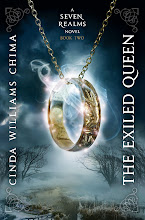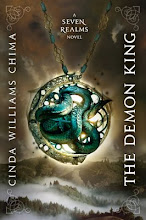We’ve been house-hunting these past few months. If you ask us why, we’ll tell you it’s because our sons have graduated high school and we don’t need to stay in the same school district. We’ll tell you that our needs have changed. In truth, it’s a combination of a desire to try something new, a fear of waiting too long, and the fact that our last move was more than twenty years ago. Apparently it takes that long for the trauma to fade.
Still, we lack the stamina to move far away. It requires too much decision-making, too much risk-taking, and besides, I like the Midwest--most of the time. I understand it.
Moving across the river seems doable.
We’ve kept it kind of quiet. Those we’ve told have responded with variations on amused skepticism and frank disbelief. I mean, we’re living in a perfectly adequate house. I come from people who stay put unless they’re run out of town.
“If you move, where will I play tennis?” my son asks—the 25-year-old who lives four states away. These days he plays at our neighborhood courts once or twice a year. But I understand. This is his childhood home—the only home he remembers. This is where his story began.
House-hunting is like having this obsessive part-time job that you know is going to cost you money. I discover that my husband and I have absolutely nothing in common when it comes to what we want in a house. We make dual (dueling?) lists of essential features, knowing that no one house will ever meet this long list of demands.
Not a house we can afford, anyway.
We begin with a budget, but soon we’re saying things like, “For only $50,000 more, we could buy that house with the media room.” Even though we know we’ll never set foot in it. Once we’ve made the mistake of looking at homes that are out of our price range, the houses we can actually afford begin to look a little cramped, a little plain, a little frayed around the edges.
Our old home is like a comfortable pair of shoes—well broken-in. We never noticed its genteel decline—we were participants, after all. The decorating may not be au courant, but it is of our own choosing. In the homes we’re looking at, we see that the cabinets are dated, the carpet is stained, and the counters are topped with Formica instead of granite. Or, if we don’t see it, our realtor points it out. “At this price point, I expect hardwood and granite,” she says.
Sometimes, I walk into a house, and feel like an intruder. I cannot see myself living there, no matter how fancy it is. Or maybe because of how fancy it is. I don’t want to feel insignificant in my own house, like I have to dress up to get out of bed.
Other homes immediately capture my heart. I imagine looking out at the world through those windows. I envision carrying my coffee onto that screened porch and flopping into the swing. I see gardens where the grass grows now. I spin madly around that kitchen, preparing supper on Christmas Eve.
I begin to write stories.
A few weeks ago, we walked into a house in the historic district of a small town. It was more money than we wanted to pay. It lacked many of the features we were looking for—the spacious workshop, the sunroom, the acres of privacy, the attached garage. Other houses were snugged in on either side.
And yet, I was smitten. That house spoke to me. It had a large, fenced in backyard—I could see flower gardens against that fence—hollyhocks and gladioli and hydrangeas. It had a beautiful kitchen, a lovely side porch and a finished third floor, which I loved, despite the sloping walls. There was a large office with windows on two sides, and it was walking distance to the library, the bookstore, the ice cream shop, and the waterfall in the park downtown.
And in the second floor hallway, there was a sign on the wall—Home is where your story begins.
We bought the house. And so, our story goes forward from there.














